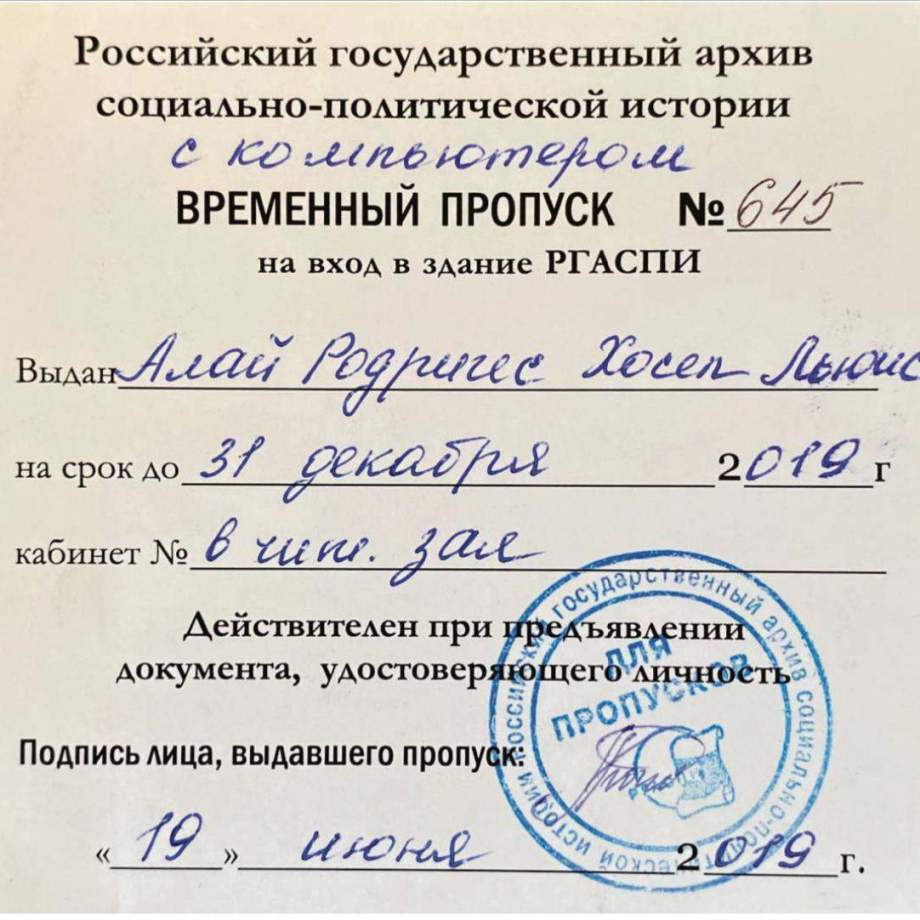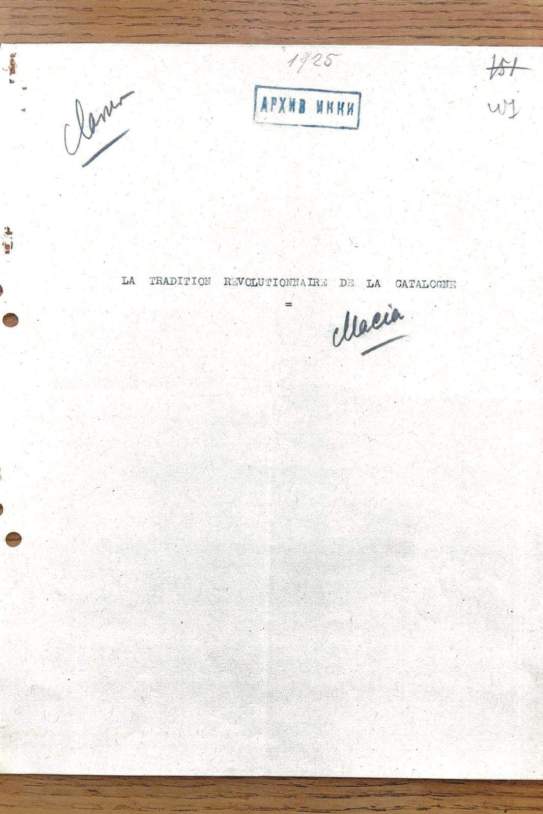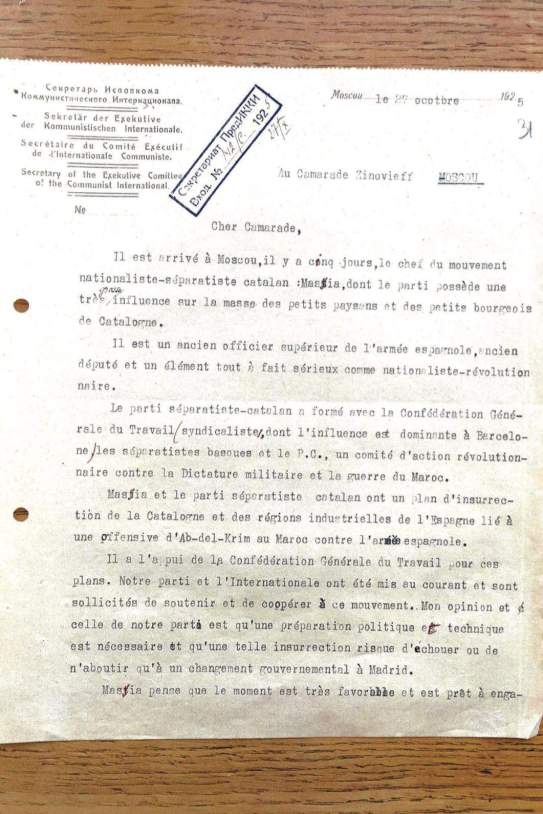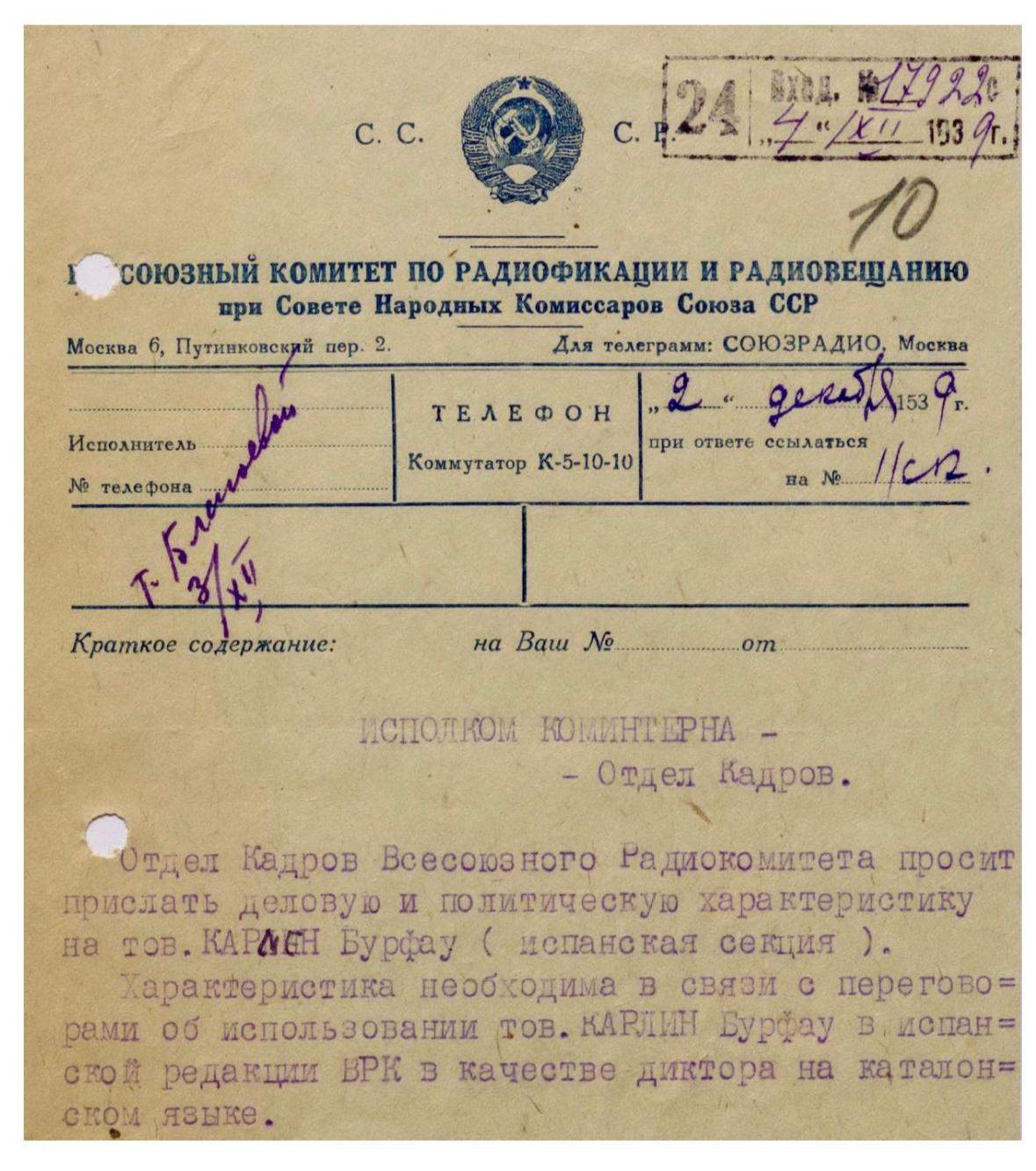Josep Lluís Alay, office director for Catalan president-in-exile Carles Puigdemont, deposited a signed statement before a notary two months after his arrest by a Spanish judge, which detailed the reasons for the three trips he made to Moscow between 2019 and 2020 and which have become material for the judicial attempt to prosecute him. He made his first visit in March 2019, as head of Puigdemont's office, to study the possibility of holding a conference in the Russian capital and to contact the media who had shown interest in interviewing him. However, the trip also had important academic content, linked to Alay's status as a contemporary history professor at University of Barcelona. The other two trips, in June 2019 and February 2020, were personal trips and focused on his activities as a historian. To record the academic research objective of those trips, Alay also deposited a copy of the documentation he managed to collect, part of which ElNacional.cat has been able to access.
Among the documents that Alay deposited, so that they would be available to judge Joaquín Aguirre, who, three years and eight months after ordering his arrest, has still not summoned him to testify, is the authorization card providing access to the Russian Federation's state archive where, as he explained in his statement before the notary, he was searching for documentation from the old Comintern archives referring to Catalonia's 1930s presidents Francesc Macià and Lluís Companys. He was also interested in information about the Brufau-Civit sisters, two Catalans exiled to the Soviet Union after the Spanish Civil War and who ended up serving as KGB agents. The document to access the archive is dated June 19th, 2019.

Among the documents that Alay located during his research in these archives was an eleven-page typewritten text from 1925 under the title La tradition Révolutionnaire de la Catalogne ("Catalonia's Revolutionary Tradition") which allegedly contained handwritten notes by president Macià.

References to Macià also appear in other documents collected in Moscow, such as a 14-page typewritten report with notes handwritten by the secretary of the executive committee of the Communist International, dated October 27th, 1925. In this text, dated five days after the start of a visit by Francesc Macià to Moscow, the Catalan politician's request to gain support for the movement he was preparing against the dictatorship of Primo de Rivera and against the war in Morocco was received not without some skepticism.

Among the documents that Alay compiled there is also one about Carme Brufau, exiled to Moscow in May 1939, who in December of that year applied to work as an announcer in Catalan at Radio Moscow, one of the first international stations that broadcast in Catalan on a regular basis.
The historian found different documents related to this subject, among them, one from December 1939 in which the political committee of Soviet radio requests authorization for Carme Brufau to be an announcer in the Catalan language on the station, also the document that the woman had to present, including her biographical data.

All this documentation, together with the statement filed before a notary, has been available to the judge since December 2020, awaiting Alay's summons to testify.

